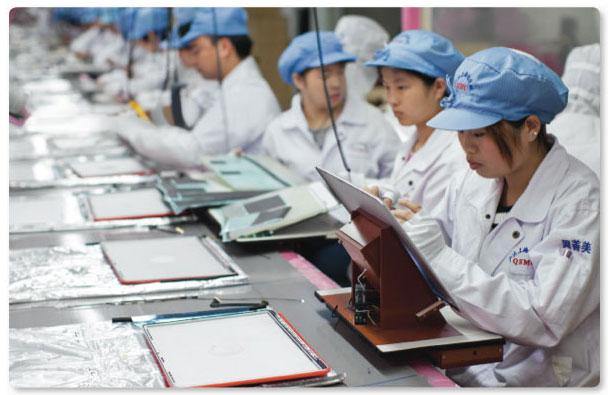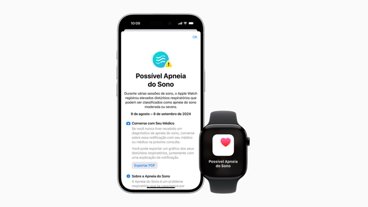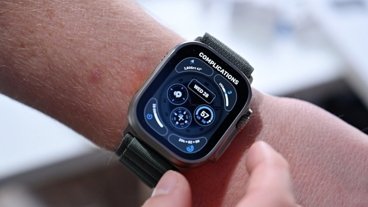In the wake of the collapse of sapphire maker GT Advanced Technologies, longtime members of Apple's supply chain have characterized the iPhone maker as a tough but fair partner who offers component makers a chance at success, provided they take proper precautions.
Officials from Pegatron and other unnamed Apple suppliers spoke with The Wall Street Journal about their relationship with the Cupertino, Calif., company, and gave some of the lessons they've learned over the years. The key takeaways were that suppliers should not promise things they cannot deliver, and that Apple partners should diversify and make arrangements with other companies.
While this might sound like basic business advice, suppliers believe those factors played a part in the implosion of GT Advanced, a sapphire maker that contracted with Apple but couldn't deliver the material as promised. In less than a year after it signed a half-billion-dollar contract with Apple, the company imploded and filed for bankruptcy.
For starters, GT Advanced told Apple it would be able to build extraordinarily large sapphire boules sized at 578 pounds — double the size of competing products. But GT Advanced struggled to manufacture boules of sapphire at that size, experiencing poor yield rates and producing tons of material that was unusable.
Over-promising to Apple, which is known for being strict and demanding, is a critical mistake, suppliers who spoke with the Journal said. One person said that suppliers from Japan tend to be conservative in what they tell Apple they can deliver, which stands in contrast to the lofty promises made by GT Advanced Technology.
Still, Apple has a reputation for being difficult, with supply chain managers who are constantly looking to squeeze costs. Many of those managers are said to be former supplier employees, so they are extremely familiar with the costs and margins of components and are notoriously tough in negotiations.
Apple's product cycles are also cyclical, with quick ramp-up of production for new products, only for shipments to slow considerably before next year's newest model. As a result, one unnamed supplier said they might not add capacity at the levels that Apple wants, for fear of incurring too great a cost.
"For example, Apple might want us to increase 100 production lines, but we would only add 50 to 60 gradually," one anonymous supply chain manager told the Journal.
For its part, GT Advanced characterized its contract with Apple as "oppressive and burdensome," and suggested that the iPhone maker squeezed the small supplier into an unmanageable contract to provide scratch-resistant sapphire material. But longtime suppliers who have watched the collapse of GT Advanced have not portrayed Apple as so villainous.
In court filings, Apple has said it "bent over backwards" to help GT Advanced, in hopes that its Mesa, Ariz., facility would eventually begin to produce usable sapphire in sufficient quantities. Apple told the bankruptcy court that it continued to make payments to its former partner even though it failed to meet performance milestones.
 Neil Hughes
Neil Hughes








-m.jpg)






 Charles Martin
Charles Martin

 Malcolm Owen
Malcolm Owen
 William Gallagher
William Gallagher

 Christine McKee
Christine McKee
 Wesley Hilliard
Wesley Hilliard









45 Comments
Duh, what else would they say? They want to appear smart, not stupid like GT Advanced.
Sounds like embarrassing statements they are making. Novices, it sounds like. If their claims are not true, and they do not, then they are wasting their breaths by making these claims.
Sure, Apple is tough, but they wouldn't be so tough that no one would work with them.
I think those amateurs at GTAT have lost the war of public opinion and are just digging themselves into a deeper and deeper hole. "We were pushovers and go suckered into agreeing to terms were weren't competent to meet" isn't a great defense/excuse. I think that only works for college dropouts when their first venture fails.
This really isn't that unusual for a relationship between suppliers and big companies. Most big industries place a lot of trust in small component suppliers, and expect those guys to deliver.
GTAT should have just been happy (and Apple shareholders should BE happy) that Apple had a plan-B and was willing to wait until the iPhone 6S (or later) to get the sapphire screens.
Unnamed sources from Apple suppliers. Why should I believe one word of this article? Let's not forget it was the WSJ that ran that nasty story right before earnings release about Apple cutting orders for iPhone 5 parts due to "weak demand". I don't trust any reporting WSJ does about Apple. http://online.wsj.com/articles/SB10001424127887323596204578240440691304344